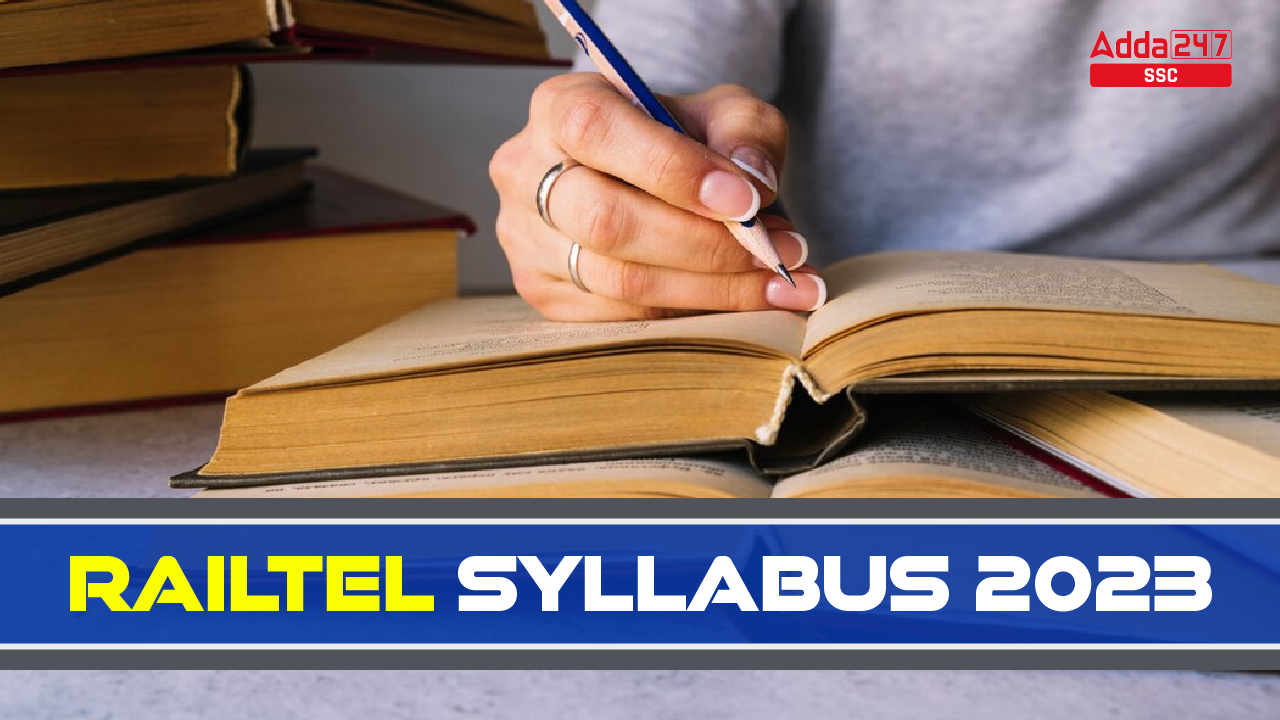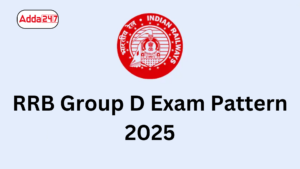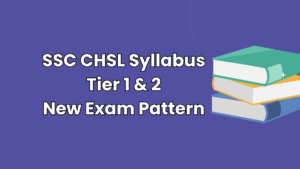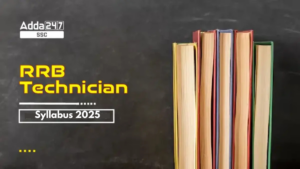RAILTEL Syllabus has been released by the RAILTEL Corporation of India Limited at their official website with the detailed notification of RAILTEL Recruitment 2025. Here, we have provided the RAILTEL Syllabus and exam pattern for the posts of Assistant Manager and Deputy Manager. Candidates who want to make their career in the government jobs, must go through the detailed syllabus of RAILTEL 2025, which we discussed in our article.
RAILTEL Syllabus and Exam Pattern 2025
Candidates who are preparing for the posts of RAILTEL Recruitment 2025 can get detailed information about the RAILTEL Syllabus and Exam Pattern 2025 from here. Your preparation for the exam decides your qualifying marks. A total of 81 vacancies will be recruited under this recruitment. RAILTEL Syllabus highlights is mentioned below, you can check it for more details.
| RAILTEL Syllabus 2025 | |
| Name of Organization | RAILTEL Corporation of India Limited |
| Post Name | Deputy Manager and Assistant Manager |
| Category | Syllabus |
| Mode of Exam | Online |
| Selection Process | CBT and Interview |
| Age Limit | 21 to 30 years |
| Types of Questions Asked | Objective Type Questions |
| Time Duration | 120 minutes |
| Official Website | railtelindia.com |
RAILTEL Exam Pattern 2025
RAILTEL Exam Pattern 2025 includes the Pattern of Exam such as Number of Questions, Total Marks and Time Duration. Here we mentioned the details of RAILTEL Exam Pattern 2025 in the table below.
- All the questions in the examination will be Objective Type Questions (MCQ’s).
- Time Duration for the RAILTEL CBT will be 120 minutes.
- There will be no negative marking for incorrect answers.
- The Question Paper will be consist of 150 marks.
- Shortlisted candidates will be invited for the Interview round which carries 50 marks.
RAILTEL Syllabus 2025
Here we discuss the subject-wise syllabus for the posts Deputy Manager and Assistant under the RAILTEL Recruitment 2025. Candidates also check the details of RAILTEL Syllabus and Exam Pattern 2025 by clicking on the direct link which we have provided in this article.
| RAILTEL Topics Wise Syllabus | ||
| S. No. | Name of Posts & Level | Subjects/Topics |
| 1 | Assistant Manager (Technical)/ E-0 Level | NETWORK Network graphs: matrices associated with graphs; incidence, fundamental cut set and fundamental circuit matrices. Solution methods: nodal and mesh analysis. Network theorems: superposition, Thevenin and Norton’s maximum power transfer, Wye-Delta transformation. Steady state sinusoidal analysis using phasors. Linear constant coefficient differential equations; time domain analysis of simple RLC circuits, Solution of network equations using Laplace transform: frequency domain analysis of RLC circuits. 2-port network parameters: driving point and transfer functions. State equations for networks. ELECTRONIC DEVICES Energy bands in silicon, intrinsic and extrinsic silicon. Carrier transport in silicon: diffusion current, drift current, mobility, and resistivity. Generation and recombination of carriers.PN junction diode, Zener diode, tunnel diode, BJT, JFET, MOS capacitor, MOSFET, LED, p-l-n and avalanche photodiode, Basics of LASERs. Device technology: integrated circuits fabrication process, oxidation, diffusion, ion implantation, photolithography, n-tub, p-tub and twin-tub CMOS process. ANALOG CIRCUITS Small Signal Equivalent circuits of diodes, BJTs, MOSFETs and analog CMOS. Simple diode circuits, clipping, clamping, rectifier, Biasing and bias stability of transistor and FET amplifiers. Amplifiers: single-and multi-stage, differential and operational, feedback, and power. Frequency response of amplifiers. Simple op-amp circuits. Filters. Sinusoidal oscillators; criterion for oscillation; single-transistor and opamp configurations. Function generators and wave-shaping circuits, 555Timers. Power supplies. DIGITAL CIRCUITS Boolean algebra, minimization of Boolean functions; logic gates; digital IC families (DTL, TTL, ECL, MOS, CMOS). Combinatorial circuits: arithmetic circuits, code converters, multiplexers, decoders, PROMs and PLAs. Sequential circuits: latches and flip-flops, counters and shift-registers. Sample and hold circuits, ADCs, DACs. Semiconductor memories. Microprocessor (8085): architecture, programming, memory and I/O interfacing. SIGNALS AND SYSTEMS Definitions and properties of Laplace transform, continuous-time and discrete -time Fourier series, continuous-time and discrete-time Fourier Transform, DFT and FFT, z-transform. Sampling theorem. Linear Time-Invariant (LTI) Systems: definitions and properties; causality, stability, impulse response, convolution, poles and zeros, parallel and cascade structure, frequency response, group delay, phase delay. Signal transmission through LTI systems. CONTROL SYSTEMS Basic control system components; block diagrammatic description, reduction of block diagrams. Open loop and closed loop (feedback) systems and stability analysis of these systems. Signal flowgraphs and their use in determining transfer functions of systems; transient and steady state analysis of LTI control systems and frequency response. Tools and techniques for LTI control system analysis: root loci, Routh-Hurwitz criterion, Bode and Nyquist plots. Control system compensators: elements of lead and lag compensation, elements of Proportional — Integral — Derivative(PID) control. State variable representation and solution of state equation of LTI control systems. COMMUNICATIONS Random signals and noise: probability, random variables, probability density function, autocorrelation, power spectral density. Analog communication systems: amplitude and angle modulation and demodulation systems, spectral analysis of these operations, superheterodyne receivers; elements of hardware, realizations of analog communication systems; signal-to-noise ratio (SNR) calculations for amplitude modulation (AM) and frequency modulation (FM) for low noise conditions. Fundamentals of information theory and channel capacity theorem. Digital communication systems: pulse code modulation (PCM), differential pulse code modulation (DPCM), digital modulation schemes: amplitude, phase and frequency shift keying schemes (ASK, PSIS, FSK), matched filter receivers, bandwidth consideration and probability of error calculations for these schemes. Basics of TDMA, FDMA and CDMA and GSM. ELECTROMAGNETICS Elements of vector calculus: divergence and curl; Gauss’ and Stokes’ theorems, Maxwell’s equations: differential and integral forms. Wave equation, Poynting vector. Plane waves: propagation through various media; reflection and refraction; phase and group velocity; skin depth. Transmission lines: characteristic impedance; impedance transformation; Smith chart; impedance matching; parameters, pulse excitation. Waveguides: modes in rectangular waveguides; boundary conditions; cut-off frequencies; dispersion relations. Basics of propagation in dielectric waveguide and optical fibers. Basics of Antennas: Dipole antennas; radiation pattern; antenna gain. |
| 2 | Deputy Manager (Technical)/E-1 Level | |
| 3 | Deputy Manager (Marketing)/E-1 Level | Concepts of Marketing Management
Marketing Environment
Analysing the Market
Connecting with customers
Developing marketing strategies
Communication with customers
Branding
|
| 4 | Assistant Manager (Financial)/E-0 Level | Basic Finance Matters
Core Subjects
|
| 5 | Assistant Manager (HR)/ E-0 Level |
|



 RRB Group D Exam Pattern 2025 for CBT 1 ...
RRB Group D Exam Pattern 2025 for CBT 1 ...
 SSC CHSL Syllabus 2025 and Exam Pattern ...
SSC CHSL Syllabus 2025 and Exam Pattern ...
 RRB Technician Syllabus 2025 and Exam Pa...
RRB Technician Syllabus 2025 and Exam Pa...


